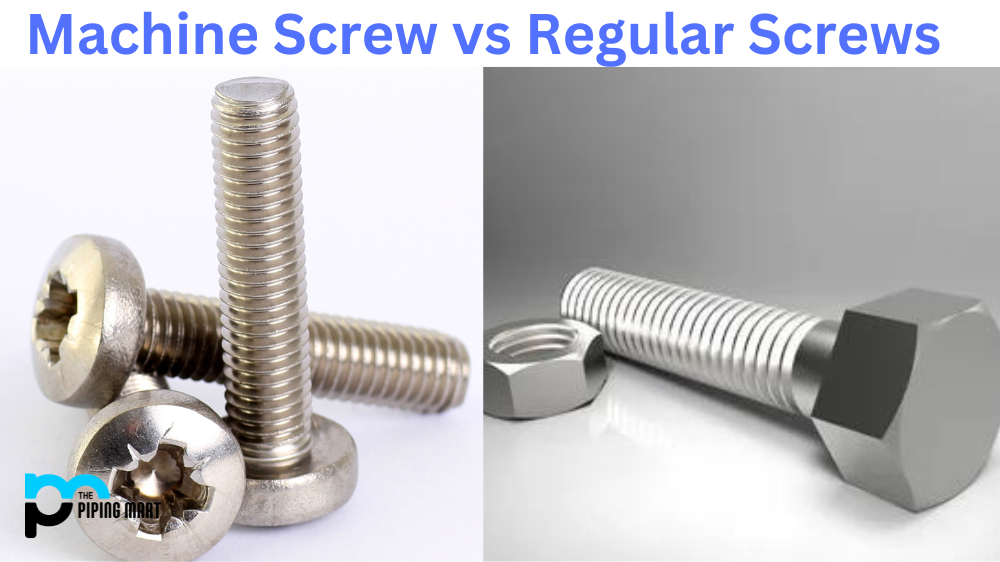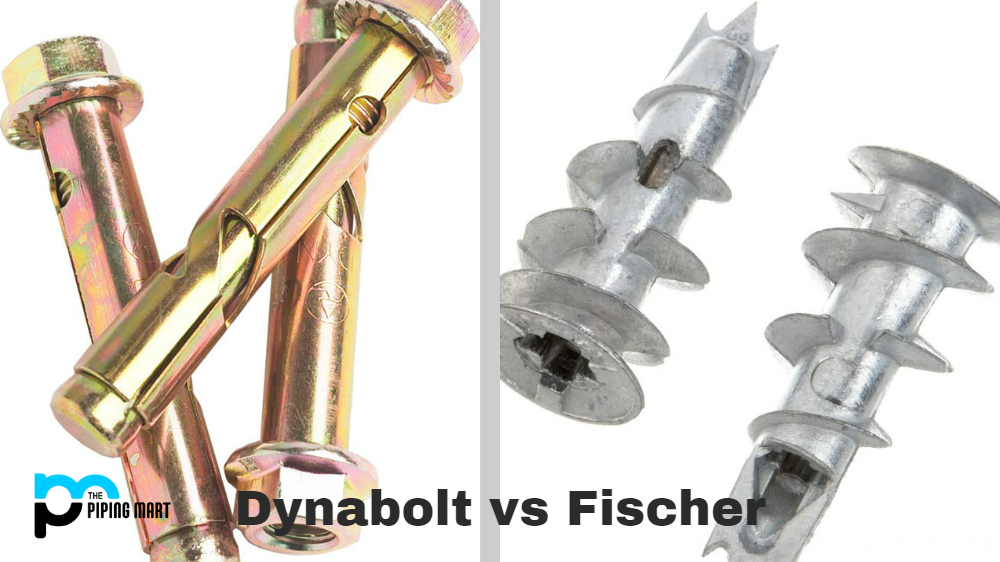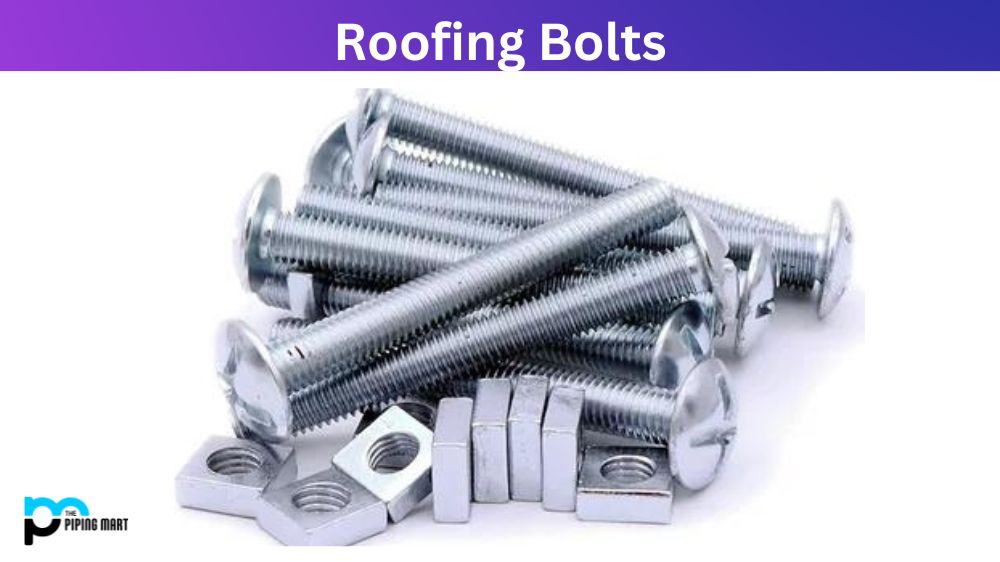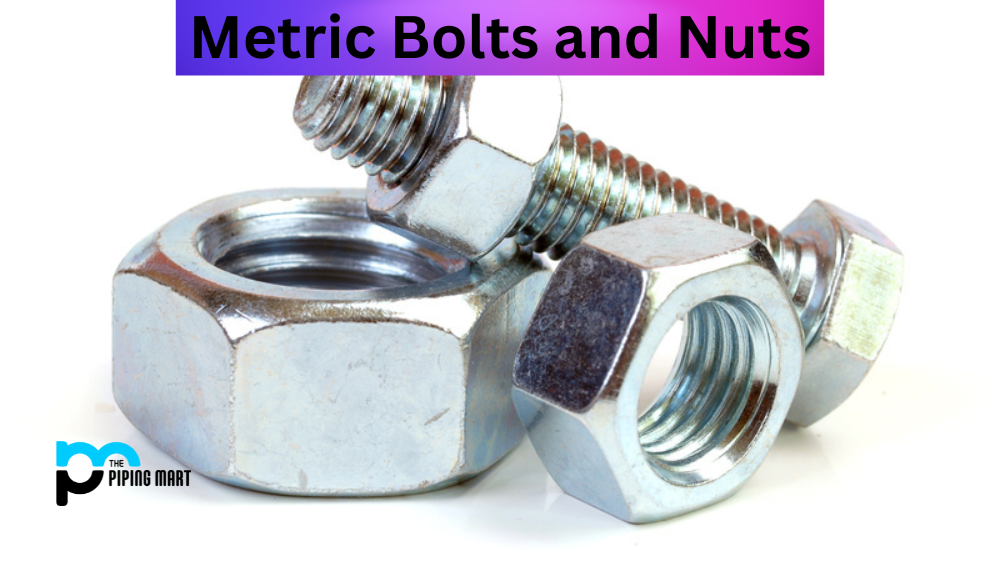Screws are one of the most essential tools in construction and woodworking. They are used to fasten things together securely and are available in different sizes and shapes. People often confuse two types of screws: machine screws and regular screws. Although they may look similar, they have other applications. In this blog post, we will discuss the differences between machine screws and standard screws and the situations where they should be used.
Difference Between Machine Screws and Regular Screws
The difference between machine screws and regular screws is their usage and application area. Machine screws are used for a more precise and specific job, whereas standard screws are more versatile and can be used for various applications. Machine screws are created to fit into threaded holes and are often used with nuts to securely fasten two pieces of metal together. Regular screws have a plain shank that allows them to be drilled into openings to attach different materials.
Size
Another significant difference between machine screws and regular screws is their sizing. Machine screws are generally smaller, ranging from 0-24 UNC to 5/16-18 UNC. Depending on the application, they are also made in different lengths and may have different head shapes (such as flat, pan-head or round). Regular screws, on the other hand, have more varied sizes- they can vary from 1/4 inch to 3 inches in length and can be used on different materials.
Material
The material of the screw dictates the level of strength the screw will have. Machine screws are often made from steel and are plated with zinc or nickel to prevent corrosion. They are created for heavy-duty applications and are built to resist rusting and corrosion. Regular screws, on the other hand, are made of different materials, such as stainless steel, brass, aluminium, or plastic, depending on their intended application.
Functionality
Machine screws provide a secure, firm, and adjustable fit for their applications. They are usually used to fasten materials made from metal (aluminium, brass, steel) and plastic. Regular screws, on the other hand, are versatile and have a wide range of functions. Standard screws can be used on various materials, such as drywall, wood, and plastic, from furniture construction to carpentry to electrical appliances.
Price
Machine screws are created for specific purposes, and as such, they are more expensive than regular screws. The treatment and plating requirements also add to their cost. Standard screws are more commonly used, and due to their versatility, they are generally less expensive. However, the price of a screw can vary widely depending on its size, material, and specific application.
Other Differences
- Machine screws are screws with a threaded shaft designed to be used with a nut or tapped hole.
- Regular screws also have a threaded shaft, but they are designed to be used in wood or other materials that can be easily drilled.
- Machine screws are typically made from more robust materials than regular screws.
- Machine screws are also typically smaller in diameter than regular screws.
- Machine screws are available in various head styles, including flat head, Phillips head, and hex head.
- Regular screws are also available in different head styles, but the most common is Phillips’s head.
- Machine screws are typically used in applications that require a more robust screw, such as machinery or electronics.
- Regular screws are typically used in applications where a less intense screw is sufficient, such as woodworking or carpentry.
Conclusion
Machine screws and regular screws have their peculiarities, and you must understand the difference before using them for any project. While machine screws are best used with specific applications where a high level of precision and accuracy is needed, regular screws are excellent for general tasks around the home. To determine the correct type of screw for your project, you must better understand each screw’s specific features and where they work best. This post has provided you with the necessary knowledge.

Meet Bhavesh, a seasoned blogger with a wealth of knowledge and experience. From metal products manufacturing to retail, Bhavesh has a diverse background in various industries and is dedicated to sharing his insights and expertise with readers.




